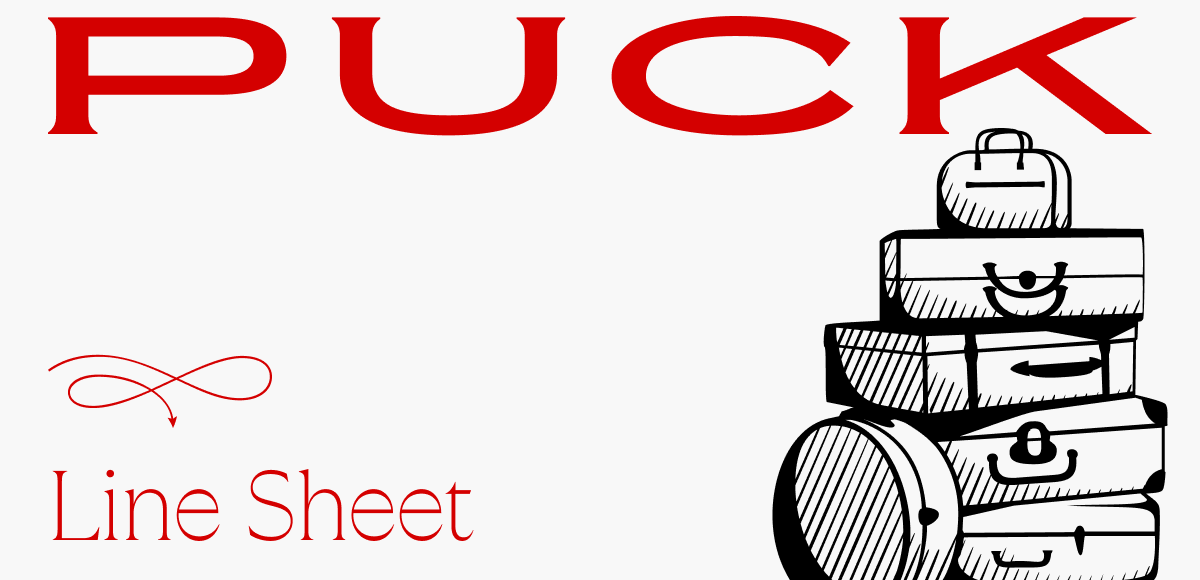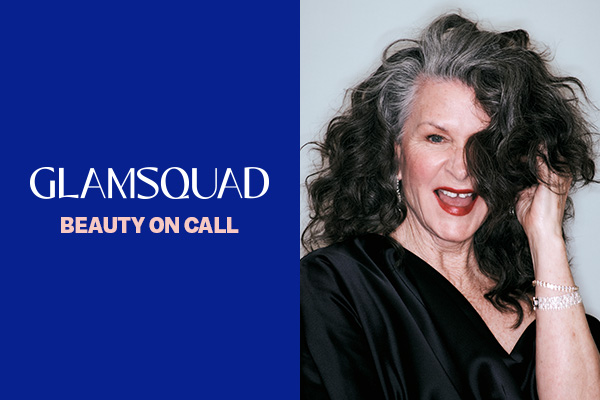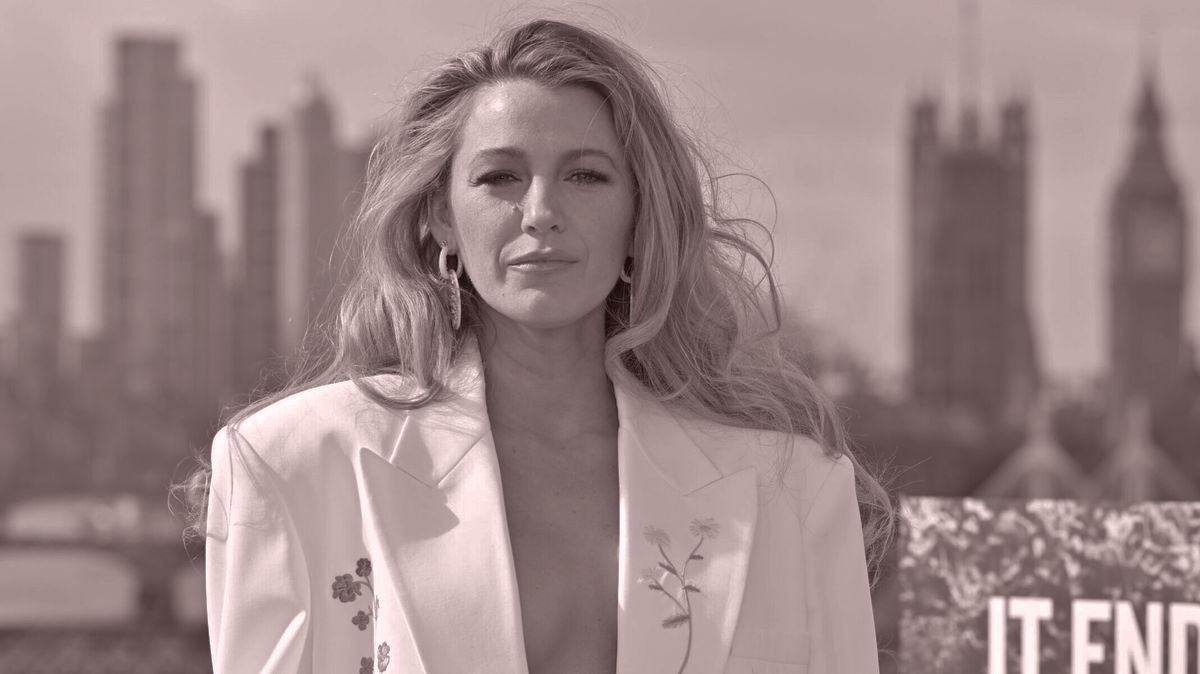Greetings! As you can probably tell, today’s newsletter looks a little different.
After three years, we’ve redesigned the look and feel of our private emails, and want to know what you think. If you have any feedback, please click here to take a brief survey.
|
Hi, and welcome back to Line Sheet. Happy Boxing Day.
The gang’s all here—Rachel Strugatz, Sarah Shapiro, and yours truly—for this very special mailbag issue, where we address everything from the Blake Lively haircare sitch to the looming threat of tariffs on the fashion industry. You asked so many fabulous questions that I may have to run a Part 2 next week. As a bonus, up top Sarah and I get into the implications
of the Saks-Neiman Marcus Group deal, which finally, finally, finally closed this past Monday.
🚨🚨Programming note: Tomorrow on Fashion People, I’m joined by Sunita Kumar Nair, author of
CBK: Carolyn Bessette Kennedy: A Life in Fashion. Yes, we talk about what you think we talk about (the internet’s obsession with Bessette-Kennedy), but Sunita also shares how she became the one to write this book, which you may find equally fascinating. Listen here and
here.
🛍️ For those of you with the shoppies: This is a great time to get something for yourself, especially if you are hard to satisfy in the gifting department. In between building Lego sets, I’ve spent my off time this week scouring
The RealReal and Vestiaire Collective for Calvin Klein 205W39NYC blazers, Chanel dresses (there are so many, proof that the ready-to-wear business is legit) and blue velvet everything. (Check out this
Alaïa dress made for Tina Turner.) Also, a P.S.A.: If you like shopping curated vintage, don’t sleep on Resee, an operation run out of a showroom on Avenue Montaigne by an American. Everything is special, and prices are competitive.
On the subject of Alaïa, I also
recommend searching the multibrand sites for fresh sales. They buy Alaïa deep and there are real deals at Saks Fifth Avenue (arguably the best selection), Nordstrom, and Bergdorf Goodman. Of course,
the dress I want is not on sale. (Actually, there are two.)
Finally, be sure to poke around La Garçonne where you’ll find Junya, Auralee, Plan C, and more. There isn’t a better mix online.
Mentioned in this issue: Marc Metrick, Tracy Margolies, Geoffroy van Raemdonck, Authentic
Brands Group, G-III, Bloomie’s and Bloomingdale’s, Bernard Arnault, Willi Smith, Geoffrey Beene, Bill Blass, L’Etiquette, Blake Lively, Danielle Steel, Lucky magazine, Charlotte Collet, Sarah de Mavaleix, Emily Weiss, Glossier, and many more…
|
|
|
A MESSAGE FROM OUR SPONSOR
|
|
|
It’s a Richard Baker
Christmas Miracle! The Saks-Neiman Deal Finally Closed
|
On Monday at about 5:30 p.m. ET, after
months—years, really—of speculation and expectation, Saks Global and the Neiman Marcus Group notified employees that the former’s acquisition of the latter was complete. On the H.R. front, it’s no surprise that Neiman Marcus Group C.E.O. Geoffroy van Raemdonck is exiting the group, which will be run by Saks Global C.E.O. Marc
Metrick. The big promotion you’ll care about is Tracy Margolies, who was named president of Bergdorf Goodman, the portfolio’s true jewel. Tracy has volleyed between Saks and Bergdorf for her entire career, and this must feel good. It’s also worth interrogating how the transaction was financed: New investors include Amazon (let’s see how that manifests itself), Authentic Brands Group (which owns the license for Barneys New York), Salesforce (they have a data and A.I.
partnership for customer service), M. Klein & Company, G-III Apparel Group (classic Seventh Avenue stuff), plus the $2.2 billion in senior debt, plus a revolving credit facility. (Also, all of Saks Global’s existing investors are staying in.)
Anyway, there’s lots to unpack here, as they say. To start, here’s a little bit of what Sarah and I discussed in the hours and days after the deal was announced:
|
- Lauren: As someone who has worked at department stores, and with department stores, what do you think the Saks-Neiman merger says about the future of multibrand retail? On Monday, the Nordstrom family also announced plans to take their company private. Remember, we also had the
(yet-to-close) YNAP-Mytheresa deal this year. And the Farfetch deal. Wow, that’s a lot! Five years ago, the future of these businesses looked very different.
Sarah: It’s challenging! Pretty much every brand sells direct-to-consumer, now, too, which has increased competition and costs to acquire customers online. Then there’s inventory management, which feels like it’s harder than ever, and shrinking profits, thanks to all of the above and rampant discounting.
Unsurprisingly, we are seeing multibrand retailers consolidate and merge—or go private away from prying eyes—to help acquire customers, connect to more brands, and to boost shareholder value through real estate expansion. This is the only way to compete against the headwinds.
Meanwhile, retailers will continue to “test-learn-scale” to grow. Nordstrom local, the smaller format Bloomie’s stores, and the Saks Media Network are all examples of how retailers are trying to stay relevant and
grow, or at least slow the downfall. The real question is whether these multibrand retailers can use this opportunity to innovate and reinvigorate the state of shopping. How do you think luxury brands feel about this acquisition? Does it change anything for them?
Lauren: Well, I am sure some of them are a little worried, even though Saks Global has made it clear that the Neiman Marcus brand isn’t going anywhere. The brands have had a lot of leverage over the department stores for
the past few years: they needed the brands, which have their own stores, more than the brands needed them. Now that it’s all one big company—and luxury spending has slowed—this new combined entity has more negotiating power. Do you think it’ll change anything for the customer? One reader asked if we thought the end-of-season sales won’t be as good.
Sarah: There are still plenty of stores not owned by Saks Global that sell most of these brands, so you’ll continue to see
competitive prices. Sales have more to do with inventory management, anyway, and that’s always a gamble. Don’t worry, you’ll still be able to score.
Lauren: Of course, that’s one of the reasons this deal went through with flying colors while the Tapestry-Capri deal got blocked. Saks and Neiman Marcus sell pure luxury goods—the F.T.C. doesn’t usually care
about making sure rich people get a deal. The sticking point with Tapestry-Capri wasn’t necessarily full-priced goods, but the potential of reduced competition between Coach and Michael Kors at the outlet stores. That’s not an issue here.
Anyway, there’s a lot riding on this merger. Sarah, what do Saks Global chairman Richard Baker, as well as Marc and the team, need to do to make sure this is a success?
Sarah:If I
were them, I would close a bunch of stores and rent those spaces to others, reduce the footprint of many existing stores, and ensure the selection in each remaining store is at once practical (what do people actually need to buy in-store these days) and inspiring (there must also be a discovery element). It is really, really hard to do that, but you have to give people a reason to walk in.
|
|
|
And now, your burning questions…
|
|
|
A pan-Line Sheet mailbag with answers to your burning questions
about the entire fashion-beauty-retail industrial complex.
|
|
|
There’s something for everyone in this end-of-year mailbag, whether you’re a
strategic-group obsessive (yes, they exist), a Blake Lively hater or stan (yes, they, too, exist), or simply betting on the date of the next Chanel price hike (we do not endorse gambling). The breadth of the questions here reflects the influence of the fashion and beauty industries on the culture at large, so we’ve assembled a dream team to
answer them: beauty correspondent Rachel Strugatz, retail expert Sarah Shapiro, and of course, yours truly. We’ll be covering it all as Line Sheet goes to five days a week starting January 6. Let’s get started…
|
Why is an American LVMH so difficult to achieve, besides
the heritage of the brands and the fact that Arnault saw this all before everyone else did and his timing cannot be duplicated?
Lauren: I’m pretty sure I’ve answered this question before, but it’s a perennial one, so I’m happy to revisit it. The short answer is that the U.S. does not have the infrastructure to build pure luxury brands—the manufacturing capabilities, the talent
pool, or the history. A proprietor could scoop up a bunch of well-known, all-but-dead American brands—say Geoffrey Beene, Bill Blass, and Willi Smith—but even if they attached cool designers and great marketers to each, there is no way to easily scale that without leather goods capabilities, and even then it’s increasingly difficult because of all the competition. When Bernard Arnault hired Marc Jacobs to design Louis Vuitton in the late ’90s, LV was already a
pretty big brand. Who knows if it would work now.
Look at The Row, which got backing from the Wertheimers and others this past year. The Row could only grow to a certain point in the U.S. before it had to move a meaningful amount of its operations to Paris. As I’ve always said, brands and operators should not
focus on replicating something that already exists—in fashion, and most other businesses, that strategy almost never works. Also, LVMH has changed, too. Arnault’s mission is no longer about resurrecting dead brands, but rather restructuring existing ones.
|
|
|
A MESSAGE FROM OUR SPONSOR
|
|
|
What’s your take on this whole Blake Lively
sitch?
Rachel: This one is complicated. Blake Brown Beauty had very strong sales at launch, which is often the case with celebrity brands, and especially ones with wide retail distribution from the jump. I initially reported that retail sales for Lively’s haircare line at Target reached close to $5 million in the first three and a half weeks––and then took a serious hit. I viewed data from two
sources that showed sales dropped by more than 87 percent between August 11, their peak, and September 15, which correlates with Justin Baldoni’s alleged smear campaign.
It hasn’t gotten much better since. According to Target sales data I viewed, Blake Brown averaged about $191,000 per SKU per week from its July 31 launch through Nov 3. But during the four-week period ending November
3, the brand averaged about $93,000 per SKU per week—an enormous decline. A 30 percent drop-off is normal, but a 50 percent drop is something. The dip in sales and change in sentiment regarding Lively and the brand was unusually extreme. In what felt like days, the narrative around Blake Brown went from an early success story to people saying they were returning her products. I do wonder if sales will rebound a bit in light of the lawsuit and a number of public figures coming
to Lively’s defense. A person with knowledge of Target’s beauty business said a “hair reset” at the retailer is imminent, and while probably unrelated, Blakely’s lawsuit is conveniently timed. But ultimately, this person reminded me, beauty brands live and die by their product quality, value, etcetera, so while Lively’s personal drama may be dominating headlines yet again, it’s the ratings, reviews, and repeat purchases that determine long-term success.
What’s going to happen with price inflation at brands next year? Plain black ballerina flats can’t possibly get much more expensive!
Sarah: Well, everything can always get more expensive, but aggressive price increases may finally be cooling off. Consumer packaged goods companies pulled back on price hikes in 2024, and
fashion retail appears to be following suit as customers show clear resistance to paying more. This shift in consumer behavior shows that perhaps brands have less control in the pricing dynamics at the moment. The luxury resale market continues to grow year over year, giving customers an alternative to owning luxury at sharper price points. Chanel only increased their handbag prices once in 2024. In previous years, the company had traditionally hiked prices twice, typically in March and
September.
Globally, brands are diversifying sourcing and production to help combat inflation and cost increases. Looking ahead to 2025, we’re likely to see more emphasis on accessible price points and value-focused offerings, like Uniqlo’s sub $100 cashmere. (I’m also excited to explore the Quince of it all in future issues of Line Sheet.) As for whether the impending, increasingly probable tariffs
will affect fashion? You won’t see that impact for at least a year or two, depending on if and how they are enacted.
Can you please please, please share your current fashion inspiration sources? Online, print, whatever… I subscribe to L’Etiquette
(love, thank you!), but I’m Substack’d out (so bored) and influencers on TikTok feel fake. I miss Lucky magazine, ugh.
Lauren: Oh man, it’s tough! I only go on TikTok for work. L’Etiquette is probably my No. 1 source at the moment. I still use Instagram a lot, and follow people whose style I love.
(Maryam Nassirzadeh, Daphne Javitch, and Danielle Steel are some favorites.) The best thing is to follow
stylists whose work you admire. I’d say that Charlotte Collet (who works with Bally, Auralee, and styles a ton of editorials) has been the most influential on me over the past year, but Sarah de Mavaleix is a constant. (If you have
received my Paris recommendation list over the years, most of it came from Sarah.)
Stores that shoot the clothes really well—like Desert Vintage—also get me going. I still pick up magazines for inspiration, though that behavior is usually driven by a stylist tipping me off by touting an editorial they worked
on. One extremely fun place to look is Japanese fashion magazines—the O.G. inspiration for Lucky. I like Fudge (very preppy and youthful), but Popeye is the big one. They mostly feature men’s clothing
but… same diff. The best place to be inspired, though, is the street. Even if you don’t go to Paris on the regular, you can look up street style imagery from Paris on the regular.
|
|
|
Do you think Glossier will finally be acquired in
2025?
Rachel: Ah, this was my second-most-asked beauty question over the course of the year, behind only who the next C.E.O. of Estée Lauder will be. (Stéphane de La Faverie officially starts in his new role in six days, by the way.) For the better part of a decade, a Glossier sale has been one of the most discussed potential acquisitions in the
beauty industry, but interest in the brand’s future has definitely peaked the last two-ish years, following some highly publicized “growing pains,” founder Emily Weiss’s decision to step down as C.E.O., a Sephora rollout, a pretty successful “turnaround,” and, most importantly, the engagement of Morgan Stanley to explore sale options.
Sure, an acquisition is always possible,
but Glossier unfortunately came up during a time of tech-level valuations, cartoonish fundraises, and prioritizing top-line growth over profitability. Until the brand becomes profitable for real (or can show a viable path to meaningful profitability), it’s highly unlikely it will sell for anywhere close to $1.8 billion—its valuation at its last round, in 2021. I heard that Glossier’s EBITDA for this year is expected to be in the mid-single-digit millions, and about twice that in 2025.
If you do that math, even a best-case scenario––a 20x multiple on, say, $15 million EBITDA––would only amount to about a $300 million sale.
Of course, to simply talk of EBITDA and multiples would be oversimplifying an extremely nuanced situation and discount the company’s revenue, which would be optimized by a strategic (more distribution, lower costs, eliminated redundancies, etcetera). Glossier literally invented the millennial beauty playbook, is strong in multiple categories (makeup,
skin, and fragrance), and has proven it can overcome real challenges (evolving from its D.T.C.-only roots, transitioning from a millennial to Gen Z brand, etcetera). I know that the two fragrance launches in September were very successful, but we still don’t yet know what re-purchase rates will look like or how they’ll ultimately impact profitability in 2025.
Sarah, you spent a
good chunk of your career as a buyer at Bloomingdale’s. Is there even a path to becoming a store buyer-slash-merchant these days?
Sarah: Buying training programs still exist, but they’ve evolved. Traditional retail giants have rebranded them as “leadership development programs,” where you’ll rotate through different roles before landing as an assistant buyer and eventually a buyer
running a department.
Here’s what I think has really changed: Many aspiring retail execs are learning the ropes at direct-to-consumer brands and retail startups. I’m sure you’ve heard the popular startup idiom about “building the plane while you fly it.” If the startup succeeds (big if!), you could ride the wave of career growth as it expands. Whether you choose the structured or startup route, success still boils down to two things: mastering P&L management
and having that sixth sense for what customers want. Those skills are never going away.
|
That’s it from Line Sheet this week. R.I.P. bag charms.
Until Monday,
Lauren
|
|
|
An insider-friendly tip sheet from Matthew Belloni, who spent 14 years in the trenches at The Hollywood Reporter
and five before that as an entertainment lawyer. Subscribers also receive What I’m Hearing+, a companion email focused on entertainment law, the streaming industry, and more.
|
|
|
Need help? Review our FAQ page or contact us for assistance. For brand partnerships, email ads@puck.news.
You received this email because you signed up to receive emails from Puck, or as part of your Puck account associated with . To stop receiving this newsletter and/or manage all your email preferences, click
here.
|
Puck is published by Heat Media LLC. 107 Greenwich St, New York, NY 10006
|
|
|
|
|












